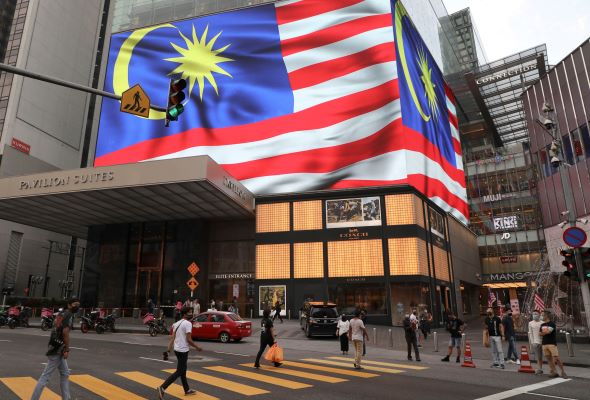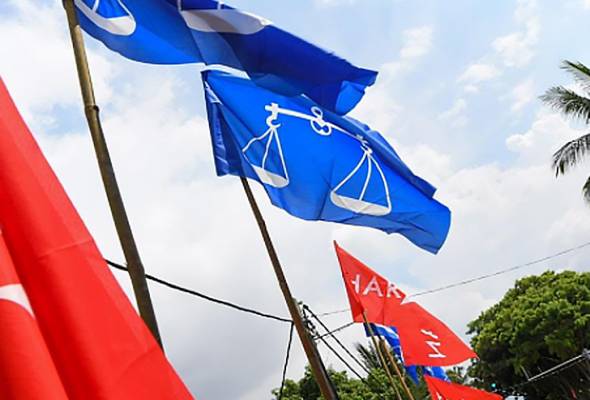
Published in The Malaysian Insight, Asia News Today & Astro Awani, image by Astro Awani.
In conjunction with the Keluarga Malaysia month in November, Minister in the Prime Minister’s Department (Parliament and Law) Datuk Seri Wan Junaidi Tuanku Jaafar read a speech on behalf of Prime Minister Dato’ Sri Ismail Sabri Yaakub in which integrity was extolled as the paragon of virtue and anchor of civic morality.
The speech that was read out at the closing of the National Integrity Convention 2021 (November 9, 2021) stated that a “… spirit of integrity was highly required in the creation of a society that appreciates inclusiveness, togetherness and gratitude [especially in the context of] facing the challenges of the endemic phase”.
The Prime Minister’s speech went on to say that “[t]he analogy is simple, a family that practises good values and demonstrating a high level of integrity will, of course, have a very low probability of getting involved in issues related to a breach of integrity, corruption or any criminal cases in the future”.
It’s actually a rare occasion for our nation’s head of government – top political leader – to venture into such a topic that would be considered as “mundane” and which brings together moral values as embodied by the sublime notion of integrity with that fundamental and pivotal role played by family upbringing.
Either our political leaders have been taking for granted the role played by family upbringing or some have downplayed that for the sake of political expediency (“plain politics”) by placing race and religion – as inciting(!) issues – at the front and centre of the national consciousness and psyche.
It’s heartening, therefore, that our Prime Minister has “introduced” the Keluarga Malaysia philosophy as his “signature brand” and to carve out a distinctive style for the current administration.
In this, he struck at the core of what it means to be a human and a citizen.
Keluarga Malaysia is an inclusive, comprehensive and total concept that encompasses the family understood as both nuclear (parent and children) and extended as well as, by extension, the society as a whole. The emphasis is on the organic (i.e., natural) analogy between the family and wider society.
The former is but a microcosm of the latter and the latter is simply the “recapitulation” or coalescence of families at the micro-level into the national family at the macro-level.
A fundamental given (i.e., in-built) that characterises the family is the social inter-connectedness and mutual dependency (in various forms and inter-temporal/generational situations – between a parent that becomes aged and a child that grows up so that the nature of that dependency is reversed).
This translates into the complex web of inter-relations and networks and connections that make up a society and marketplace.
The insights of Keluarga Malaysia is that it re-vitalises and re-emphasises the realities of what’s known as the “estates of life” or “orders of creation” as the natural scheme and arrangement of life and civilisation – the social and socio-economic “locations” or situatedness as a given in broad terms or parameters.
Meaning that Keluarga Malaysia – with its three (“theological”, as in a relative sense) pillars of “Inclusivity”, “Common Ground”, and “Contentment” – is grounded in real-world dynamics and also religious worldviews.
In other words, Keluarga Malaysia expresses the basics of human identity.
For example, the pillar of “Inclusivity” highlights the “truism” that, by default (as a given or in-built), to be a human is already an inclusive concept because the situation presupposes and implies the existence of other humans.
This naturally leads to the second pillar of “Common Ground” whereby to be human is to have a family already in existence. This means common ground with other humans within the (immediate) family.
By extension, the commonality can then be naturally/organically extended to other fellow humans outside the (immediate) family as well as society irrespective of ethnicity or religion or culture.
Finally, since to be a human is a gift of the Creator (and nature) and thus to exist is to receive life from outside of ourselves, the third pillar of “Contentment” is a natural outcome. We are to be contented with our “standing” or “stations” in life.
It doesn’t mean that we aren’t to strive for socio-economic advancement and progress. That is, contentment doesn’t preclude upward mobility.
But it does mean that we are to be contented with our current situation in life.
This brings us to the critical point of whether Keluarga Malaysia can actually be translated into reality.
Or is it a rhetoric designed to evoke the feel-good sentiments of the rakyat?
Is Keluarga Malaysia a “cynical” (in the political sense) ploy which aims to appeal to or rather capitalise on our tolerance and patience of the shortcomings and misdeeds of politicians as leaders of the nation?
Let us look at the three pillars in turn again – but in a contextual fashion this time around.
Has “Inclusivity” been applied to policy-making and policy-implementation?
Taking Budget 2022 as a prominent example in relation to community-specific allocations, we can see the bumiputeras receive 97% in total which is translated from the RM11.4 billion under the bumiputera empowerment agenda. The non-bumiputeras were allocated RM345 million – with the Chinese community only receiving a measly RM200 million and the Indian community given a mere RM145 million.
This is blatantly and grossly unfair to the non-bumiputera communities.
Both communities have similar concerns and needs in common with the majority bumiputera community.
Not only do the Chinese and Indian communities need access to credit and funding for entrepreneurship, they also need funds for national-type and independent or private schools (education) as well as socio-economic (e.g., scholarships, bursaries, free tuition classes) and cultural development (e.g., upkeep and upgrading of places of worships and religious centres, preservation and promotion of cultural heritage) programmes.
Furthermore, is “Common Ground” really and truly celebrated on the ground (pun intended)?
The controversy over the Timah whiskey – whereby the manufacturer was accused by certain quarters of intending to sow confusion and induce Muslims to drink that brand of alcohol – and the silence from the administration throws into doubt the sincerity of applying the second pillar of Keluarga Malaysia.
Finding and upholding a common ground would mean, paradoxically, respecting and recognising the differences among the diverse ethnic communities in our society.
As it is, “common ground” (as a familiar and general phrase) presupposes and implies certain “irreducible” distinctive differences among groups marked by ethnicity, religion, language and culture in the first place.
In subjecting the application of the sub-concept of “common ground” to our context, we can see that in practice, there’s still a long way to go for us to find a common identity which overrides, transcends and overcomes our artificially-manufactured prejudices, however knee-jerk or in-grained.
Although the controversy was finally resolved by a Cabinet decision to allow the continuation of the use of the brand name, “Timah”, on the condition that an explanatory note is included on the label, much damage has been done.
Lastly but not least, is the third pillar of “Contentment” also applied in its genuine and authentic sense?
The outcry over the proposed 51% bumiputera equity requirement in the logistics industry with specific reference to the freight forwarding companies that are registered after 1990 (which supposedly marked the end of the New Economic Policy with its “preoccupation” with boosting equity ownership as a proxy of bumiputera economic success) very clearly demonstrates this isn’t the case at all.
Some would, rightfully, argue that the 51% in place of 30% represents surfeit requirement and is therefore a form of greed. This is exactly the opposite of contentment.
These are just some examples of the myriad of cases which characterise the dynamics of a diverse and plural Keluarga Malaysia or Malaysian Family.
Whilst we boast of being multi-ethnic, multi-religious, multi-cultural, multi-linguistic, etc. the underlying reality remains that we are still not as united and cohesive as we should be.
In the final analysis, has Keluarga Malaysia – which defines and places the concept of the family at the front and centre of the national philosophy – been successful in counter-balancing the prioritisation of race and religion considered as a given or in-built in(to) our political narrative?
Only time would tell.
For now, based on the three examples alluded, it’s evident and undeniable that Keluarga Malaysia remains a mere rhetoric that have yet to fully translate into meaningful action that assures everyone of their place under the Malaysian sun.
What then?
It all goes back to the political will to ensure that rhetoric (blueprint) becomes action (footprint).
And summoning the political will requires integrity in the first place.
Jason Loh Seong Wei is Head of Social, Law & Human Rights at EMIR Research, an independent think tank focussed on strategic policy recommendations based on rigorous research.

